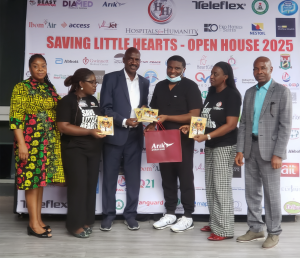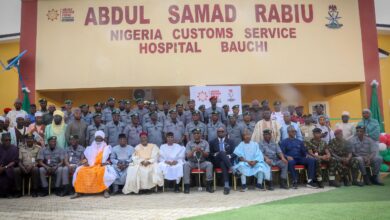

As part of the collaboration with hospitals in a remarkable initiative aimed at providing about 150 Nigerian children with free open heart surgeries annually, Arik Air, Nigeria’s leading airline is providing flight support to Hospitals for Humanity’s medical missions to Nigeria.
According to the airline’s Public Relations & Communications Manager, Adebanji Ola who disclosed this in a press release, these missions bring together volunteer paediatric cardiac surgeons and healthcare professionals from around the globe who perform complex heart surgeries at no cost to the families involved.
Arik Air’s support is invaluable in helping Hospitals for Humanity achieve ease of logistics for children and their parents who reside in destinations far from the surgery location including health care volunteers.
Through this partnership, Arik Air is reaffirming its commitment to Corporate Social Responsibility (CSR) by helping bridge this critical healthcare gap.
Arik Air’s Chief Executive Officer, Captain Roy Ilegbodu said the initiative is a testament to the airline’s dedication to not only airlifting people but contribution to the wellbeing of the communities also.
“We are honoured to stand alongside Hospitals for Humanity in their mission to give hope and a second chance at life to children with congenital heart defects. This initiative aligns with Arik Air’s dedication to not only connecting people through air travel but also investing in the wellbeing of our communities”.
The Chief Executive Officer and Founder of Hospitals for Humanity, Dr. Segun Ajayi affirmed that through the support of Arik Air , more children that could not afford heart surgery will be saved.
“Over the years, Hospitals for Humanity has performed numerous successful surgeries and impacted countless lives. However, the demand remains high, and with continued support from organisations like Arik Air, even more children can receive the critical care they need”.
Congenital heart disease remains one of the leading causes of death in children worldwide, especially in developing nations where access to specialized surgical care is limited.










p30xem